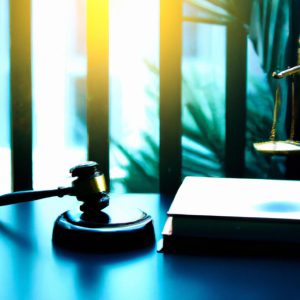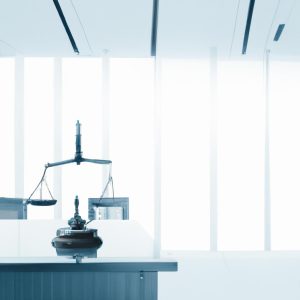As seasoned legal practitioners at Morgan Legal Group, nestled in the heart of New York City, we navigate the intricate realm of estate planning with precision and expertise. Today, we delve into the pivotal juncture of the probate hearing – a crucial component in the administration of an individual’s final wishes. Join us as we unravel the nuances of this essential legal process, shedding light on its significance and impact on the distribution of assets.
The Importance of Proper Documentation in Probate Hearings
Proper documentation is crucial in probate hearings as it serves as evidence to support claims and decisions made during the process. Without accurate and detailed documentation, it can be challenging to establish the validity of a will or trust, leading to delays and complications in distributing assets. Documentation also helps ensure that the deceased’s wishes are carried out correctly, preventing disputes among beneficiaries.
Having proper documentation can also help streamline the probate process, making it more efficient and cost-effective for all parties involved. Additionally, well-organized documentation can provide clarity and transparency, reducing the likelihood of misunderstandings and disputes. By carefully organizing and maintaining all relevant documents, individuals can ensure a smoother probate hearing and help protect their estate from unnecessary legal challenges.

Strategies for Navigating Complex Legal Procedures
When preparing for a probate hearing, it’s crucial to have a well-thought-out strategy in place to navigate the complex legal procedures involved. One key strategy is to thoroughly review and understand the decedent’s will, as well as any relevant state laws and regulations. This will help to ensure that you are properly prepared to argue your case in front of the court.
Additionally, it’s important to gather all relevant documentation, such as financial records, property titles, and any other evidence that supports your position. Presenting a clear and organized case will help to streamline the probate process and increase the likelihood of a favorable outcome. Lastly, consider seeking the guidance of an experienced probate attorney to help you navigate the intricacies of the legal system and provide valuable expertise throughout the proceedings.

Key Considerations for Successfully Presenting Your Case
When preparing for a probate hearing, it is essential to keep several key considerations in mind to effectively present your case. By following these guidelines, you can increase your chances of a successful outcome:
- Thorough Documentation: Ensure you have all necessary documents, such as the will, financial statements, and any relevant evidence to support your case.
- Professional Representation: Consider hiring an experienced probate attorney to guide you through the legal process and present your case effectively.
- Clear Communication: Clearly articulate your arguments and address any potential objections to strengthen your position in court.
Additionally, it is crucial to anticipate any potential challenges that may arise during the probate hearing and strategize accordingly:
- Evidence Presentation: Organize your evidence in a clear and persuasive manner to strengthen your case and refute any counterarguments effectively.
- Professional Demeanor: Maintain a professional demeanor throughout the hearing to convey credibility and reliability to the court.
- Legal Strategy: Develop a comprehensive legal strategy in consultation with your attorney to navigate any unexpected obstacles and secure a favorable outcome.

Tips for Working Effectively with Your Probate Attorney
When working with your probate attorney, it is essential to establish clear lines of communication from the beginning. Make sure to provide all relevant documents and information promptly to avoid any delays in the probate process. This includes wills, trusts, financial statements, and any other documentation related to the estate.
Additionally, it is important to trust your probate attorney’s expertise and guidance throughout the probate process. Remember that they are there to help navigate the complexities of probate law and ensure that the estate is handled appropriately. By working together effectively, you can streamline the probate process and minimize any potential disputes or complications that may arise.
Q&A
Q: What is a probate hearing?
A: A probate hearing is a legal proceeding in which a judge reviews the validity of a deceased person’s will, or determines how their assets will be distributed if they died without a will.
Q: What happens during a probate hearing?
A: During a probate hearing, interested parties may present evidence to support or challenge the validity of the will, and the judge will make a decision on how the deceased person’s estate should be handled.
Q: Who typically attends a probate hearing?
A: Typically, the executor of the deceased person’s estate, beneficiaries named in the will, and any creditors or other interested parties may attend a probate hearing.
Q: How long does a probate hearing typically last?
A: The length of a probate hearing can vary depending on the complexity of the case and the amount of evidence presented, but they generally last anywhere from a few minutes to a few hours.
Q: What happens if someone contests the will during a probate hearing?
A: If someone contests the will during a probate hearing, the judge will need to review the evidence and make a decision on the validity of the will based on the facts presented.
Q: Can a probate hearing be avoided?
A: In some cases, a probate hearing can be avoided if the deceased person’s assets were placed in a trust or if the estate is small enough to qualify for simplified probate procedures.
In Summary
As the probate hearing draws to a close, it is a reminder of the importance of ensuring that loved ones’ final wishes are carried out in a timely and efficient manner. While the process may seem daunting, with the right legal guidance and support, the probate process can be navigated smoothly. Remember, this is a crucial time to honor the legacy of those who have passed and to provide closure for all involved. Thank you for joining us on this exploration of probate hearings, may your journey through this process be as seamless as possible.











